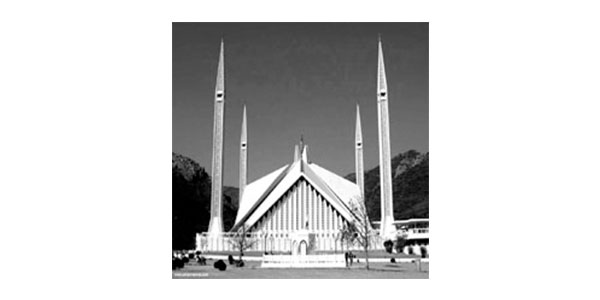Role of mosque in reforming society
THE role of the mosque in Islam is one of the major things that have to be reformed. Some people assume that the mosque only exists for the performance of Prayer, and that no other activities are permitted in it.
Anyone talking about contemporary issues in the mosques, such as issues relating to the economic, political or the social system of Islam, is looked down upon and even stopped.
However in the history of Islam, the Holy Prophet’s Mosque in Medina provided an assembly house for the Muslims where addresses were delivered by the Holy Prophet, which contained not only appeals for obedience to the Allah Almighty but regulations governing the social life of the community; from his mosque, the Prophet controlled the religious, social and political community of Islam.
In the Holy Prophet’s Mosque a raised platform was erected for the companions, the Ashab-e-Suffa, one of whom was Abu-Hurairah, the famous reporter of the Prophet’s Traditions, hadiths.
In the Holy Quran, the words that describe the purpose of building a mosque are Mosque of Allah, meaning the places of worship are to be built for the sake of Allah Almighty.
The Holy Quran says: In houses which the Allah Almighty has permitted to be built that His name might be praised in them, in them they praise Him, morning and evening, men whom neither business nor trade distracts from praising God and performing the prayers and the giving of alms.
(Al Noor:36) A passage in the Qur’an also speaks of dwelling in the mosque over and above its being the centre of worship and administration.
There are a number of mosques where apartments have been attached to be used as a hostel for the wayfarer, especially the religious personage.
The mosques have also been used as courts of justice, and the Holy Prophet is reported to have settled legal questions in the mosque at Medina.
It is a historical fact that illiteracy and ignorance were the most dominating evils among the Arabs before the advent of Islam.
The Glorious Qur’an and Holy Prophet laid the greatest emphasis on the dissemination of knowledge and learning.
Education was made obligatory on all Muslims, men and women, along with the importance of writing or pen.
In the Prophet’s Mosque in Medina, The Holy Prophet himself started a school, where, he along with his companions gave lessons on the Qur’an and general ethical knowledge.
The Arabs knew nothing then of a compulsory school system.
The spiritual power which the Qur’an exercised, led them on, without any extraneous pressure, to an earnest longing to read it (the Qur’an) for themselves, and this desire, by itself, indeed, spread all over the Islamic world.
With this stimulating enthusiasm, elementary schools sprang up without compulsion from above.
Not only in the later centuries do we find a school in every small village, or attached to every mosque but even in the earliest times arrangements to that end were made by the people themselves, and not in Arabia and Iraq but in all other provinces that came under the banner of Islam.
The Holy Prophet established the foundation of his blessed mosque on piety. In it prayers and Quran verses were performed, the remembrance of the Allah Almighty and teaching knowledge established, and speeches were given.
And in it were matters of politics, troops were deployed and in it Muslims gathered for their religious and livelihood affairs.
The mosque was the headquarters of the Islamic State’s supreme leadership: The mosque is a centre from where the State’s affairs are run, since the Holy Prophet used to meet envoys, sign agreements, judge between disputing parties and so on in the mosque.
The Caliph, the head of the Islamic State, would outline his policies and methods, and address and debate with his subjects directly without any fear of reprisal in the mosque.
For instance, the speech of the Caliph Abu-Bakr, delivered in the mosque of the Holy Prophet once he had been given the oath of allegiance, has perhaps gone down in history as being the shortest political speech delivered by a ruler.
The Mosque is a section of the Ministry of Information: The Mosque is regarded as an important centre for Islamic information, since it is the scene of political, social, cultural and ritual life.
All the important news relating to vital issues are announced in the mosque and it also ensures direct contact between the carrier and the receiver of the message.
It is considered one of the most effective and successful means of giving information. The Azan, for instance, is information about the time of prayer and at the same time it is also a means of campaigning for Islam and spreading it.
The pulpit is a place for information about the campaign and on it the principles of the campaign are explained and its rules announced.
The Mosque is a Court of Justice: The mosque used to be a place where judges would convene to settle disputes and look into complaints.
There is much evidence showing this and there is no difference of opinion among the various schools-of-thought concerning this.
The Mosque is a University for Learning and Teaching: The mosque teaches the basics of Islam, the acts of worship and the Sharia rules in all their types, political, economic, social, judicial and others.
Its policy is based on the Qur’an and Hadith with the aim of building and educating Islamic personalities by way of study circles, debates, and conferences.
Such meetings will be engulfed by compassion; the mercy of the Allah Almighty descends on them, and they are surrounded by the angels.
—The writer is contributing columnist.










